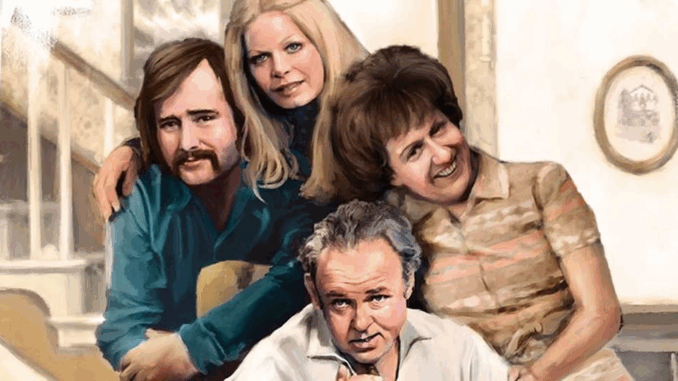
Decades after its debut, All in the Family continues to spark conversations with its bold take on politics, race, and family life. Discover why this controversial sitcom still resonates with audiences today.
Why “All in the Family” Remains One of TV’s Most Impactful Shows Ever
When All in the Family premiered in 1971, television had never seen anything like it. The show broke barriers, sparked heated debates, and brought difficult social issues into America’s living rooms—one primetime episode at a time. Over five decades later, the impact of All in the Family is still felt, proving that groundbreaking TV doesn’t just entertain—it challenges, provokes, and endures.
A Sitcom That Changed Television Forever
Created by Norman Lear, All in the Family introduced viewers to Archie Bunker, a working-class conservative whose outdated views clashed hilariously—and sometimes uncomfortably—with the changing world around him. Through Archie’s arguments with his progressive son-in-law Mike, his strong-willed wife Edith, and his independent daughter Gloria, the show tackled taboo topics like racism, feminism, war, and politics.
What made the show revolutionary was its willingness to say what other programs wouldn’t. It confronted audiences with their own beliefs, often holding up a mirror to American society in all its complexity.
Why It Still Matters Today
Even in 2025, the themes of All in the Family remain strikingly relevant. Issues like political polarization, generational divides, and cultural shifts are more present than ever, making the show feel eerily timely despite its 1970s setting. Archie Bunker may be a product of his time, but the conversations he sparks are timeless.
What’s more, All in the Family opened the door for future socially conscious sitcoms—from The Jeffersons to Modern Family. Its DNA can be found in today’s comedy landscape, where humor and activism increasingly go hand in hand.
Controversy Was the Point
Some critics argue the show was too bold, too offensive, or too willing to platform ignorance. But that was exactly the point. Lear never asked viewers to agree with Archie—he asked them to listen, laugh, and think. The discomfort was intentional, and in many ways, it’s what gave the show its staying power.
By blending harsh truths with humor, All in the Family proved that sitcoms could be more than light entertainment—they could be instruments of change.
A Legacy That Lives On
In recent years, live remakes and tributes have reintroduced All in the Family to new generations, often featuring big-name actors like Woody Harrelson and Marisa Tomei. These modern adaptations serve as a reminder of the show’s enduring relevance and its foundational role in television history.
Whether you’re watching for the first time or revisiting old episodes, All in the Family remains a must-see for anyone interested in where TV has been—and where it’s going.